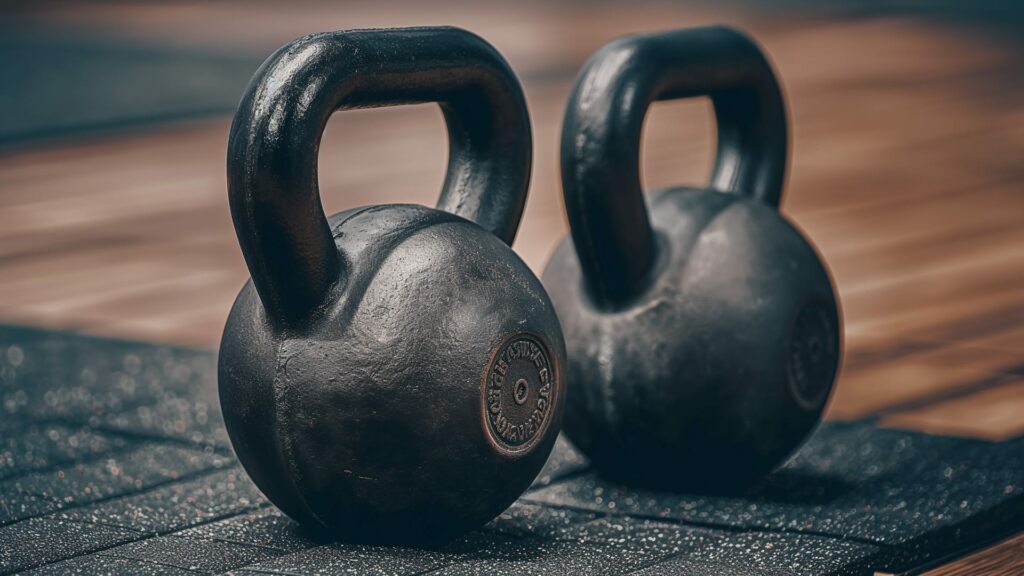Let’s face it, running alone won’t get you those chiseled legs and a strong core. Weight training, however, can make a massive difference in your performance and injury prevention. Today, let’s dive into why lifting those weights can be a game-changer for runners.
The Benefits of Weight Training for Runners
- Injury Prevention: Building muscle around your joints acts like a suit of armor. Less chance of pulling something when you step on an uneven surface or twist awkwardly. Studies have shown that strength training reduces the risk of overuse injuries in runners by improving joint stability and muscle resilience.
- Enhanced Performance: Think of stronger muscles as turbo boosters. They make you more efficient, faster, and can even help you go the extra mile. Research indicates that strength training can improve running economy by 4-8%, meaning you use less energy at the same pace.
- Muscle Endurance: Weights help build stamina. Your muscles won’t tire out as quickly during those long runs. Combining strength and endurance training leads to better overall muscular endurance and fatigue resistance.
- Balance and Coordination: Dumbbells force each side of your body to carry its weight (literally). This leads to fewer imbalances and better overall form. Improved balance and coordination from weight training can enhance running form, leading to more efficient movement patterns and reduced risk of falls or stumbles.
My Personal Experience
Two months ago, I ditched weight training to prepare for my first half-marathon. Big mistake. I felt the lack of strength during my runs. Today, I went back to the gym and it felt like reuniting with an old friend. Alen, a friend running the gym, gave me the pep talk I needed to get back into the groove.
Currently, I’m focusing on an 8-week program with dumbbells. After this, I’ll switch to kettlebells. Both have significant benefits for runners, so incorporating them into your gym routine is essential for balanced strength training.

Why Dumbbells?
Using dumbbells in your workouts ensures that both sides of your body develop equally, helping to correct imbalances and improve overall strength. This balance is crucial for maintaining proper running form and preventing injuries.
Dumbbells allow for a greater range of motion and can target specific muscle groups more effectively than machines.
Why Kettlebells?
Kettlebells enhance functional strength and stability, crucial for dynamic running movements. They also combine cardio and strength training in one workout and require more core stabilization due to their off-center weight distribution.
Kettlebell swings, in particular, are excellent for improving hip power and explosiveness, which can translate to better sprinting and hill running performance.
Which is Better for Runners – Dumbbells or Kettlebells?
Both are beneficial for runners but offer different advantages:
- Dumbbells: Great for muscle balance, isolated strength work, and controlled movements.
- Kettlebells: Ideal for functional strength, improving core stability, and combining cardio and strength.
Why Use Both?
Incorporating both dumbbells and kettlebells into your training routine provides comprehensive benefits. Dumbbells help with balance and isolated strength, while kettlebells enhance functional strength and endurance. By using both, you can address all aspects of muscle development and running performance.
A well-rounded strength program that includes both tools can lead to better overall athleticism and injury prevention.

Incorporating Weight Training into Your Routine
- Consistency is Key: Just like running, weight training requires regular effort. Aim for at least 2-3 sessions a week.
- Progress Gradually: Start with lighter weights and increase as you get stronger.
- Recovery Matters: Don’t skip the cooldown and make sure to get plenty of rest. Muscles grow when they recover.
- Mix It Up: Avoid getting bored by mixing different exercises and routines. This also ensures you hit all muscle groups.
What the Pros Say?
Many elite runners and coaches advocate for incorporating weight training into a running regimen. For example, renowned marathoner Shalane Flanagan includes strength workouts in her training to enhance performance and reduce injury risk. Eliud Kipchoge, the marathon world record holder, also incorporates weight training, particularly focusing on core and leg strength to maintain his performance. The consensus among experts is clear: combining running with weight training leads to better results.
Final Thoughts
Weight training isn’t just about bulking up. It’s about building a stronger, more resilient body that can handle the demands of running. Whether you’re prepping for a marathon or just looking to improve your 5K time, adding weights to your routine can make a world of difference.
Remember, the goal is to complement your running, not replace it. So, grab those dumbbells and kettlebells, and start lifting – your legs (and times) will thank you!

